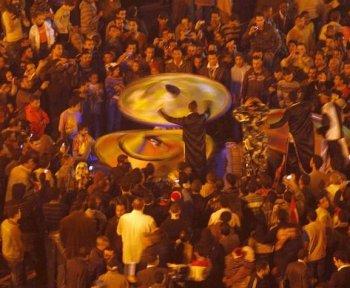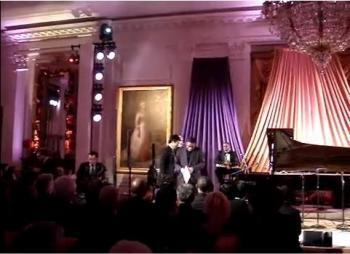The Chinese Ministry of Education is conducting a pilot study on music education curriculum standards for primary and secondary schools from this March to July of 2008, with 10 school districts in Beijing involved in the study.
Beijing Operas are new additions to the revised curriculum standards. What’s causing debate is that the majority of the 15 selected arias are prototypical works from the Great Cultural Revolution (1966–1976).
Ms. Zhang Yihe, a writer and scholar in traditional operas, expressed her confusion over the usage of revolutionary-era operas by the Ministry of Education.
The 66-year-old Zhang Yihe is the younger daughter of the “rightist” Zhang Baijun. She once lived in Hong Kong as a child, then settled in Beijing. In 1960, she was admitted to the department of Drama and Literature at the Chinese Opera Institute (now Chinese National Academy of Arts.) Later she was charged with the “crime of counter-revolutionary” and sentenced to 20 years in prison.
Ms. Zhang Yihe started teaching in 1979 at the Opera Institute and retired in 2001. Last year, the General Administration of Press and Publication banned eight of her books, including the “Opera Actor’s Past,” which led to strong repercussions for her both at home and abroad.
Revolution Era Propaganda vs. Traditional Classics
It is reported that nine of the 15 arias are selected from so-called “model operas” made during the Cultural Revolution such as “The Red Lantern,” “The Red Detachment of Women,” and the “Raid on the White Tiger Regiment.”
Zhang Yihe says, “Revolution era operas were made with a political agenda. The concept was to serve the political leadership and the characters are conceptualized.”
“It is confusing and puzzling to me to bring in so much model operas into the classroom.”
She says that traditional Chinese operas such as the Peking Opera and Kunqu Opera are based on traditional repertoires, which comprise the traditions and basic techniques children should learn and become familiar with.
“Now all this focus on the contemporary operas is something I don’t understand. In China, the officials decide such issues. However, I am afraid they are being biased,” she says.
Zhang Yihe says, “I always feel China lacks aesthetic education. Since 1949, aesthetic education has been removed and schools have engaged in political and ideological education to teach the kids to love the communist party, to love Chairman Mao with slogans such as Chairman Mao is the closest blood, Deep appreciation and affection for the party, and so forth. Both traditional culture and aesthetics have been absent for the past 60 years.”
She says an aesthetics curriculum should include such things as Chinese calligraphy, Chinese painting, Chinese dance, and landscape architecture. “I am opposed to giving tests. These classes are to allow the children to enjoy and appreciate the arts. They nurture the soul so that we become gentle and have the ability to distinguish between beauty and ugliness. Political classes will not have such an impact.”
Traditional Culture Cleanses the Human Mind
Zhang Yihe says, “Nowadays many things get so ugly and distorted and this [decline] is directly related to the arts lacking aesthetics for 60 years.”
She worries that the traditional culture is at the brink of extinction in China. “The traditional culture is nearly finished. Of 1.3 billion Chinese in mainland, how many of them know anything about traditional culture? I feel our tradition is dying.”
Zhang Yihe believes the society will benefit when morality and traditional arts return, “Only arts, the traditional arts, can warm a person’s feelings, and purify a person’s soul. Only the true arts will touch the heart of all people, including religious people, instantaneously.”
The Artist’s View of Chinese New Year
Speaking of traditional culture, Zhang Yihe talks about her understanding of the Chinese New Year in contrast to the CCTV’s New Year program.
She says, “The program is worthless, and I have not watched it for over 10 years, because I feel it’s an ‘entertainment’ that is forced upon me. I am alone. I had a family 10 years ago. During the New Year, I'd like to sit and chat together, cook, talk about the old days, and play fireworks at the yard. I wonder if we can celebrate the Chinese New year in such way again. Life has become such a formatted pattern. Watching TV is becoming such a passive acceptance.”
She continues, “Everyone has personal understanding of the meaning of festivals which may not be the same as the CCTV’s understanding.”


